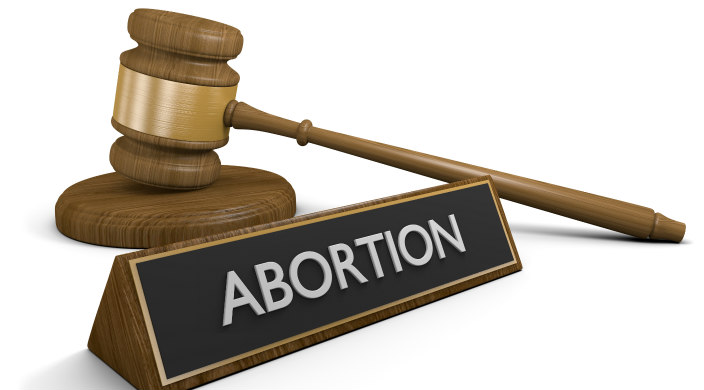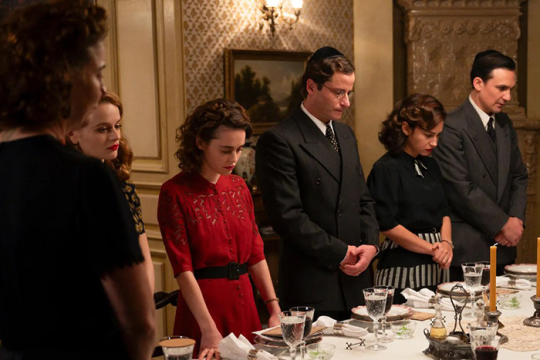
In the days before Roe v. Wade declared abortion a constitutional right, the symbol of women’s underground, dangerous – and persistent – efforts to obtain abortions was the simple wire coat hanger. Despite the constitutional protections in place since 1973, this gruesome symbol has recently made a troubling return to our discourse on reproductive justice.
In December, a 31-year-old Tennessee woman was arrested and charged with first-degree attempted murder for a failed “self-abortion” with a coat hanger on her 24-week-old fetus. When the woman panicked at the sight of blood, she was rushed to a hospital and eventually delivered a severely damaged 1.5-pound infant.
At this point, we do not know any more about this story. What we do know, however, is that Tennessee – like many other states – has imposed tight restrictions on abortions, creating a pariah-like atmosphere for women and for abortion providers. Many who lobby for and enact such restrictions cite their religious belief that life begins at conception as justification for their actions.
This belief is not true in Judaism, in which the fetus in the womb does not have the status of a nefesh (literally, a soul), a legal person.
The halachic (traditional Jewish legal) principle that a fetus is not a human being comes from the Torah itself: Exodus 21:22-23 describes a situation in which two men are fighting and a pregnant woman is accidentally injured. If the fetus is lost but the woman survives, the man who is responsible is fined for injuring the woman; but if the woman dies, it’s considered a capital crime punishable according to nefesh tachat nefesh, a life for a life. Indeed, halachah (Jewish law) not only permits, but actually requires, abortion when necessary to save a woman’s life even as she is about to deliver, “for her life comes before its life,” according to the Mishnah (Ohalot 7:6). The Mishnah’s ruling leads some later authorities to broaden permission to abort beyond the threat to a woman’s life to her healing, be it physical or psychological.
Starting from there, halachic views on abortion generally fall into two camps. The first sees the Mishnah as an over-arching rule that the life of the mother takes precedence over that of the fetus. The second follows Maimonides, who argued that the sanction for abortion is based on the principle that if the fetus endangers the life of the mother, it is to be considered a rodef, a pursuer or aggressor, that must be killed to protect the intended victim.
My own teacher and our movement’s great halachic scholar, Dr. Mark Washofsky, points out in his book, Jewish Living: A Guide to Contemporary Reform Practice, that the latter view would limit abortion to situations in which the mother faces mortal danger – a position favored, he writes, by most contemporary Orthodox authorities. Reform Judaism, on the other hand, sides with the broader, more permissive stance. It is on this basis, then, that the Reform Movement has long argued in favor of reproductive choice on religious and moral grounds.
The Union of American Hebrew Congregations’ 1967 General Assembly resolution appealed to states (pre-Roe, abortion was subject to state law) to “permit abortions under such circumstances as threatened disease or deformity of the embryo or fetus, threats to the physical and mental health of the mother, rape and incest and the social, economic and psychological factors that might warrant therapeutic termination of pregnancy.” Several times since, both the successor Union for Reform Judaism and the Central Conference of American Rabbis have affirmed this position. The CCAR Responsa Committee, for its part, also favors abortion in the earliest weeks of the pregnancy, when the fetus clearly would not be viable, and cautions against treating abortion as a form of birth control.
Reform Judaism also recognizes the inequity and injustice done to poor women without funds or access to abortion. And we promote reproductive justice as one aspect of empowerment, tied as a woman’s power over her own body is to her access to education and financial independence.
As a rabbi who has the honor and responsibility of counseling people at the most difficult and intensely private moments of their lives, I know there are myriad reasons for a woman to seek an abortion. And as a rabbi who has served numerous congregations in small and politically conservative communities, I have seen first-hand the vilification of women who seek to terminate their pregnancies legally and safely, even by her healthcare providers. Every situation is unique; none is helped by an intrusion of political posturing or the imposition of someone else’s personal religious beliefs into the intimate lives and decisions of women and their families.
On the 43rd anniversary of this momentous decision, neither the horrific dangers of the coat hanger nor the threat of prosecution should be part of our conversation about women’s health and women’s choices. Our Jewish tradition, and our Reform understanding of that tradition, teaches otherwise.
Related Posts

“We Were the Lucky Ones:” Bringing The Holocaust Out of History Books and Into Our Homes

Harnessing the Power of our Mothers Around the Seder Table

